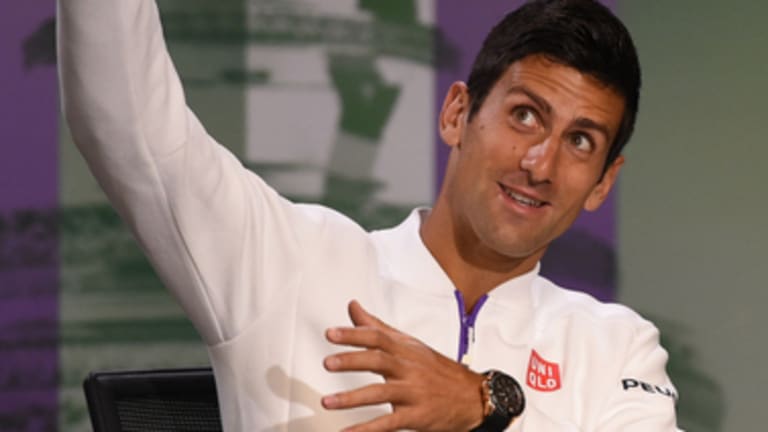Possibly inspired by his recently published book, Boris Becker is not holding anything back these days. His star pupil, world No. 1 Novak Djokovic, is dealing with the fallout of claims that his team coaches him during matches. “There are moments when he looks up and he needs assurance that what he is doing is right,” Becker said on BBC Radio. “And then we have our ways about it to tell him it’s good or tell him it’s bad. And then it’s up to him to change it.”
The WTA has allowed on-court coaching since 2008 at all its tournaments; the Grand Slams, which are outside of the WTA’s jurisdiction, are the notable exceptions. Last fall, the WTA announced that coaches could even bring tablets on court so they could have mid-match stats on hand. But the ATP has not budged, clearly stating that any communication between players and coaches during matches is strictly prohibited.
There is precedent for all of this drama: In January, Becker admitted that he tries to communicate with Djokovic. “During a match the referee obviously watches me carefully and I can’t do a lot,” said Becker. “But there are people with me and they can use some Serbian dialect to let him know what I want. That works pretty well.”
Rafael Nadal has been accused many times for communicating with his coach and uncle, Toni, and was fined for it during Wimbledon in 2010. At the Australian Open in 2008, Jelena Jankovic paid a $2,000 fine after her mom spoke to her in Serbian during her match. Maria Sharapova was even part of a banana scandal at the US Open in 2006, where her entourage was allegedly signaling to her with fruit.
Nadal defended himself by saying that his uncle wasn’t giving him tips, just support. Which is what Djokovic echoed at this year’s Wimbledon. “I’m going to say that there are certain ways of communication which is encouragement, which is support,” Djokovic said. “… But it’s all within the rules.”
